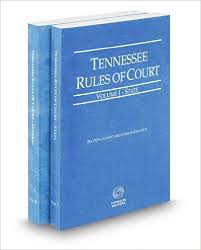The Tennessee Rules of Civil Procedure Rule 8 provides that a pleading which sets forth a claim for relief, whether an original claim, counterclaim, cross-claim, or third-party claim, shall contain 
In Stephanie Solima v. David Solima, the parties were divorced in July 2006, and Stephanie Solima (Mother) was designated the primary residential parent for their only child (a son). The final divorce decree contained a provision prohibiting Mother from consuming alcoholic beverages when the parties’ son was in her custody. This provision was later modified to prohibit both parents from drinking alcohol in excess in the presence of their child. At all relevant times, the parties were operating under a parenting plan adopted on April 8, 2013.
On July 9, 2013, Mother lost her job in Tennessee, and, on August 20, 2013, she found a job in Dallas. Mother subsequently filed a petition seeking permission to relocate and the entry of restraining orders against David Solima (Father). Father filed a response opposing Mother’s petition to relocate. Father also filed a separate petition to modify the parenting plan seeking, in part, to be designated as the primary residential parent. Mother filed a response opposing Father’s Petition to Modify.
After a hearing, the trial court did not name Father the primary residential parent but modified the schedule to increase Father’s parenting time. The trial court also modified child support by imputing additional income to Father after finding he was willfully underemployed.
Father appealed to The Court Of Appeals Of Tennessee At Nashville arguing that the trial court erred by imputing additional income to him based on a finding of willful underemployment due to the issue of his alleged willful underemployment not being raised in the pleadings. Mother did not allege that Father was voluntarily or willfully underemployed; therefore, Father argued, he was not put on notice the issue would be tried.
After oral arguments and reviewing the record, the Appellate Court concluded the following:
We agree with Mother that Father was on notice that child support would be modified if he were designated the primary residential parent or if the change in the days allocated to each parent under the parenting schedule created a significant variance in the amount of child support owed. In fact, Father submitted a proposed parenting plan that modified the child support section contained in the April 2013 parenting plan; however, that was based on a change in parenting time. The foregoing notwithstanding, notice that child support may be modified based on a change in the primary residential parent or parenting time does not, without more, put a party on notice that he or she is alleged to be underemployed and that the court may impute additional income to him or her when calculating or modifying child support.
Evidence that is relevant to modification of child support based on a change in the amount of parenting time may be very different from the evidence that is relevant to whether a party is voluntarily or willfully underemployed.
Based on these legal principles, we have concluded that Father was not on notice that the issue of voluntary underemployment would be tried. Therefore, the trial court erred by imputing income to Father for calculating his basic child support obligation. Nevertheless, because each party’s respective parenting time was modified by the trial court, it was incumbent on the court to determine whether that created a significant variance and, if so, to modify child support pursuant to the guidelines.
As such, the trial court’s modification of child support by imputing additional income to Father after finding he was willfully underemployed was reversed due to lack of notice as provided in The Tennessee Rules of Civil Procedure.
If you were not given notice of an issue raised in a court pleading and as a result received an unfavorable ruling, you should seek the services of an experienced family law attorney. Contact Donna Wagner to schedule your consultation.

